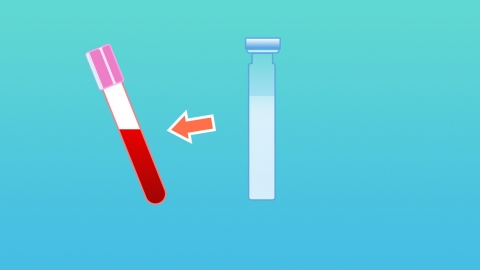What causes elevated CRP after surgery?
Generally, elevated CRP levels after surgery may be caused by postoperative stress response, recovery phase reaction, surgical site infection, pulmonary infection, urinary tract infection, or other reasons. It is recommended to seek timely medical advice to identify the underlying cause, and then improve the condition under a doctor's guidance through monitoring, medication, and other methods. Detailed analysis is as follows:

1. Postoperative Stress Response: Surgical trauma may stimulate the body, triggering an acute inflammatory response that temporarily elevates CRP levels, commonly occurring 1-3 days after surgery. There are usually no significant symptoms or discomfort. No specific treatment is required; closely monitor body temperature and wound condition. CRP levels typically gradually decline around one week post-surgery. Keep the wound clean and avoid contamination during this period.
2. Postoperative Recovery Phase Reaction: During tissue repair after surgery, mild localized inflammation may persist, causing a slight elevation in CRP levels, sometimes accompanied by mild wound swelling. Keep the wound dry, change dressings regularly, increase intake of high-quality protein in the diet to promote tissue healing, and have CRP levels checked once weekly to monitor changes in the indicator.
3. Surgical Site Infection: Bacterial contamination of the surgical incision can cause localized inflammation, significantly elevating CRP levels, accompanied by redness, swelling, pain, and wound exudate. Patients should follow medical advice to use antibiotics such as Cefuroxime Axetil Tablets, Amoxicillin Clavulanate Potassium Tablets, or Levofloxacin Tablets for anti-infective treatment.
4. Pulmonary Infection: Prolonged bed rest and poor expectoration after surgery may lead to bacterial proliferation and pulmonary inflammation, elevating CRP levels, accompanied by cough, sputum production, and fever. Patients should follow medical advice to use medications such as Cefoperazone Sodium and Sulbactam Sodium Injection, Ambroxol Hydrochloride Oral Solution, or Azithromycin Capsules for treatment.
5. Urinary Tract Infection: Postoperative urinary catheter placement or difficulty in urination may allow bacteria to ascend and infect the urethra and bladder, elevating CRP levels, accompanied by symptoms such as frequent urination, urgency, and painful urination. Patients should follow medical advice to use anti-infective medications such as Cefaclor Capsules, Nitrofurantoin Enteric-coated Tablets, or Ciprofloxacin Hydrochloride Tablets.
In daily life, keep the surgical site clean and avoid friction or irritation. Early ambulation after surgery is encouraged to reduce complications associated with prolonged bed rest. Additionally, enhancing physical immunity can help control inflammation and assist in returning CRP levels to normal.




